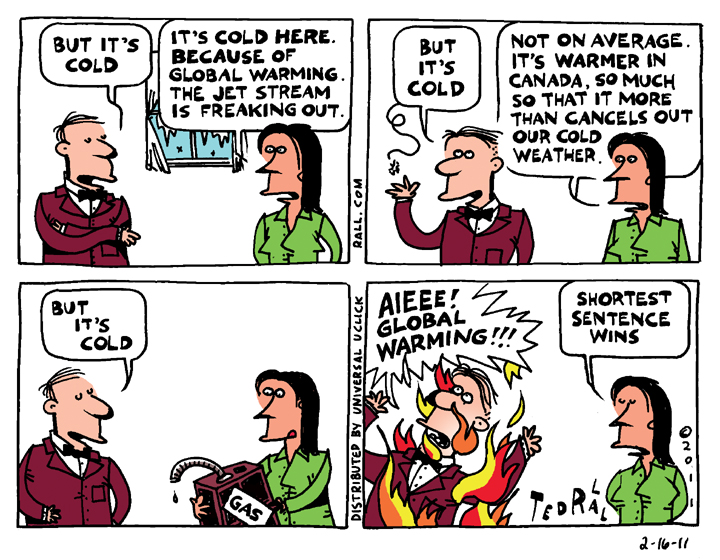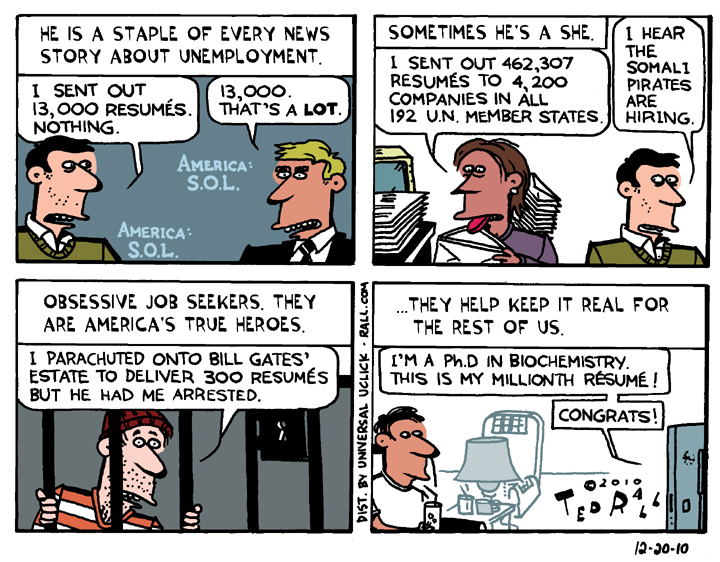Voters Focus on Spending at Just the Wrong Time
Ross Douthat, the conservative columnist who elevates bland to middle-brow art for The New York Times, thinks Republicans have overreached in their showdown with Obama over the debt ceiling. “[The Republicans’] inability to make even symbolic concessions has turned a winning hand into losing one,” he says.
Advantage, according to Douthat, representing the mainstream media: Obama.
Of course, Obama had already agreed to begin dismantling Social Security and Medicare, surrenders Republicans have craved for decades. If he pulls off this “victory” Obama will have done more damage to the Democratic Party and its core values than any president in our lifetimes. How will he promote what Douthat fears will be a “victory”? I wonder.
Or, to lift a line from “Double Indemnity”: I wonder if I wonder.
Back a few pages, Times reporter Jesse MacKinley finds himself in the curious position of writing that no one really cares about a story that has dominated the headlines for weeks.
“Indeed, the drama of whether the government will raise the debt ceiling (to the chagrin of some conservatives demanding tighter financial belts) or allow it to remain as is (to the horror of the administration and economists who predict financial ruin) seemed largely lost on a populace involved in more pressing—and more pleasant—summer distractions,” asserts MacKinley.
To summarize:
No one cares about the debt ceiling.
And:
Among the few political geeks who understand what’s going on, much less have an opinion, the tide is allegedly turning in favor of Obama because he’s willing to compromise and the Tea Party-led GOP isn’t.
Conventional wisdom floggers like Douthat say that if Congress can’t strike a deal and economic consequences follow—a reduction in the ratings of U.S. government-issued securities and a panic in the securities market—voters will hold Republicans accountable in 2012. Even if things don’t turn that far south, the GOP will pay for their intransigence. Obama wins in a cakewalk.
I’m not so sure.
In the same way that generals usually refight the last war, mainstream political pundits often apply old scenarios to new situations. This is not 1995, when then-House Speaker Newt Gingrich orchestrated a shutdown of the federal government that set the stage for Bill Clinton’s reelection the following year.
Without a doubt, the Republicans’ willingness to imperil the pure platinum credit of Treasury notes and bonds is reckless and irresponsible. There is also no denying their naked hypocrisy and intellectual dishonesty. These so-called “deficit hawks” voted 19 times to raise the debt ceiling by $4 trillion.
If Republicans were serious about balancing the federal budget they’d start by slashing the military, which accounts for 54 percent of discretionary spending—and which hasn’t done anything to defend the U.S. from a real enemy since 1945. The Department of Homeland Security, a vast new bureaucracy created by Bush after 9/11 in order to make us take off our shoes, should be eliminated.
Moreover, the middle of the biggest economic meltdown since the industrial revolution is no time to be cutting debt. Read your Keynes: governments are supposed to spend their way out of downturns, and pay down debt during upswings.
Republicans, it seems, are trying to finish off an economy that is already gravely wounded.
Politically, however, I think they’re onto something. Year after year of warnings about the expanding national debt—remember Ross Perot’s charts?—the American people are finally, genuinely alarmed about the pace and scale of government spending. The current national debt of $14 trillion isn’t the magic number that flips some sort of switch in the public.
It’s simply that, at certain times, public opinion on an issue that has been around for years, divisive and apparently intractable, suddenly coalesces into widespread consensus. Climate change. Gay marriage. The war in Afghanistan, which was so popular in 2008 that Obama won by promising to expand it, but is now seen as stale and unwinnable.
Win or lose on the debt ceiling showdown, GOP strategists are betting than voters will reward them for taking an uncompromising stand on spending against a president who has increased the national debt faster than any of his predecessors. It’s not 100 percent—but I’d say it’s a pretty safe bet.
This is the worst possible time for the American people to start worrying about out-of-control federal spending. But it’s good for the GOP.
(Ted Rall is the author of “The Anti-American Manifesto.” His website is tedrall.com.)
COPYRIGHT 2011 TED RALL




